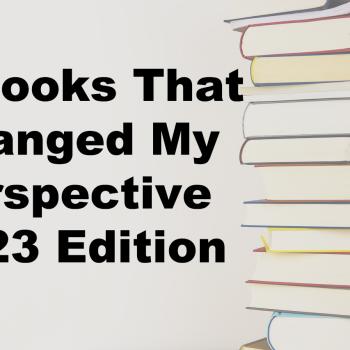Editor's Note: This essay has been previously published in Atheist Voices of Minnesota (Freethought House, 2012), edited by Bill Lehto, and is reprinted with permission.
To this day I remain momentarily tongue-tied when asked where I'm from. It is certainly not unusual for people to have travelled to distant parts of the globe, but growing up one's whole life as a global nomad is a rare lifestyle. My childhood comes with images of varied landscapes, set to the tune of ethnic hymns, changing periodically, and sometimes drastically, like a panorama on an endless loop. Well, not quite endless, because here I am. America has been, for the last few years, a much-needed oasis of stability from where I can reflect on all that I have seen. I seek to derive insight from my experiences, for there must be some value in being exposed to the endless diversity of the human race. Here's a brief attempt at gauging where my thoughts, and my values, come from.
A lot of my identity stems from my atheism. This might be a strange revelation, for what is atheism but an absence of belief? How can one define oneself based on a void? A void may seem like a dark, obsolete reality, but like anything in life, it depends on what you make of it. With absence and emptiness comes the benefit of being free of preconceptions, and with it the ability to start on a blank canvas to paint your own future. It is hard to be truly open-minded and intellectually independent when tied down by the restraints of dogma and superstition. Being truly liberated, one can find meaning and purpose in life that is genuinely one's own. I am new to this path, but it seems a promising one. I have constantly reflected on the experiences I've derived around the world to formulate my own code of ethics—one that tries to encapsulate what is good and noble about humanity while disavowing the biases that religion, tribalism, and other social institutions have used to inflict misery.
One of my concerns stems from the current state of philanthropy. I have noticed an unsettling trend when it comes to altruism. "Community-based" charitable organizations in America seem to garner more attention than organizations that focus on international relief. This, I believe, is a result of the psychological inclination to help one's own countrymen over those living in foreign lands.
On face value, this does not seem like a significant issue. There are the homeless, the poor and the hungry in America who do benefit from the actions of such community-based organizations. It is a problem, however, when the dichotomy between the industrialized poor and the third-world poor is as wide as it is today. Across regions of Africa and South-Asia, each day thousands of people die of hunger, and each year millions of children die of preventable, curable ailments. Problems of this magnitude are unheard of in this country. Yet only 5 percent of aid originating from the U.S is directed toward international charities (Giving USA, Executive Summary Report, 2011, pg. 13).
This is an appalling statistic, in my opinion. I believe the decision of where to donate one's money should be based not on national identity or race, but instead on the amount of relief it may provide the recipient. Geographic boundaries, language, and skin color should matter less than the commonalities of the human experience. The secular community should be the first to awaken to this, as many of us have. We ought to learn from leaders like Warren Buffet and Bill Gates, famous atheist philanthropists who have taken a strong stance against global misery and suffering.
Being an atheist is certainly not sufficient in order to live an ethical life. One needs to embark on philosophical reasoning to determine how to make the best moral decisions in our everyday lives. Unfortunately, atheists are often tempted by moral relativism to disregard discussions of personal ethics. I have heard repeatedly from atheists that "people should be left to follow their own beliefs, and discussions on ethics impose on people's lifestyles." Such an imposition, I believe, is necessary if we are to examine the effects of our daily actions. Convincing people to donate more, for example, is critical if we are to try to alleviate global suffering. In cases where inaction leads to misery and death, we have the obligation to try making a difference by engaging in constructive dialogue and raising awareness among our fellow Americans. Atheism should inform our social dialogue, based on a recognition that we are all, regardless of belief system, ethnicity, or race, united in our susceptibility to pain and suffering.
From the compassion that came from an association with less-fortunate human beings, my personal journey in ethics has also led me to reexamine how I have treated other species. I've first recognized that, contrary to what most of the religious contend, there is nothing intrinsically special about being a member of Homo sapiens. Humans were not created, and do not have any "God-given" right of dominion over other animals, yet we have evolved to hunt and eat other animals. Evolution has naturally been blind to any moral direction, but I feel that as an intelligent species, we have the responsibility to adopt one. Our inseparability from other animals is undeniable; though we have evolved with qualities like intellect and communication, we still share with them the perception of pain and suffering. The philosopher Jeremy Bentham was once asked where the "insuperable line" should be drawn dividing beings that matter from those that don't; he was challenged to decide between a full-grown horse and an infant child, given their roughly equal levels of intelligence. He rejected a distinction based on intellect, famously replying, "The question is not, 'can they reason?' nor 'can they talk?' but 'can they suffer?'" This is one of the most profound statements I have ever been exposed to.




